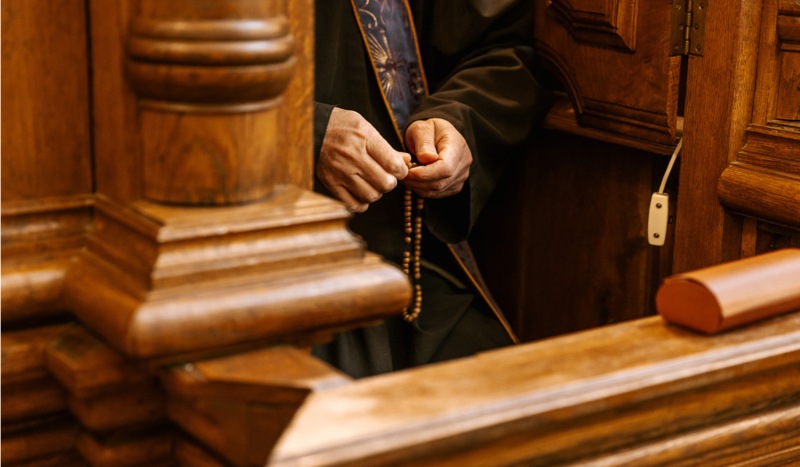
Adobe Stock
The U.S. Department of Justice (DOJ) announced June 23 that it has filed legal action against the State of Washington, challenging a controversial law that forces Catholic priests to violate the sacred confidentiality of the confessional.
Washington’s Senate Bill 5375, passed earlier this year, requires clergy to report suspected child abuse — even if such information is revealed solely during sacramental confession.
For Catholic priests, this creates an impossible dilemma. Canon law demands absolute silence regarding anything heard in the confessional, and violating that seal results in automatic excommunication.
This latest move from the DOJ follows weeks of scrutiny. The department opened a civil rights investigation into the law May 5, warning that it appeared to compel Catholic clergy to “violate their deeply held faith in order to obey the law.”
The National Confraternity of Catholic Clergy, representing priests and deacons nationwide, also condemned the statute at that time as a grave threat to religious liberty and sacramental practice.
Its president, Father John Trigilio, warned, “Criminal prosecution must rely on constitutional methods to convict rather than violate the freedom of religion.”
This week, the DOJ filed a complaint in federal court, seeking to intervene in an ongoing case, Etienne v. Ferguson, arguing that the law violates both the Free Exercise Clause of the First Amendment and the Equal Protection Clause of the Fourteenth Amendment.
The DOJ clarified in its court filings that it is not “challeng[ing] the inclusion of priests as mandatory reporters per se” but takes issue with any requirement that would compel priests to report what is revealed exclusively during confession, Law & Crime reported.
Assistant Attorney General Harmeet K. Dhillon, who leads the DOJ’s Civil Rights Division, stressed the constitutional concerns at play.
“Laws that explicitly target religious practices such as the Sacrament of Confession in the Catholic Church have no place in our society,” she said in the department’s announcement.
Dhillon added that the law “unconstitutionally forces Catholic priests in Washington to choose between their obligations to the Catholic Church and their penitents or face criminal consequences,” calling it discriminatory in how it treats clergy-penitent privilege compared to other protected communications.
The department’s motion argues that the law not only burdens clergy, but also penalizes Catholic penitents, depriving them of the constitutional freedom to practice their faith through a central sacrament.
Dhillon said, “The Justice Department will not sit idly by when States mount attacks on the free exercise of religion.”

